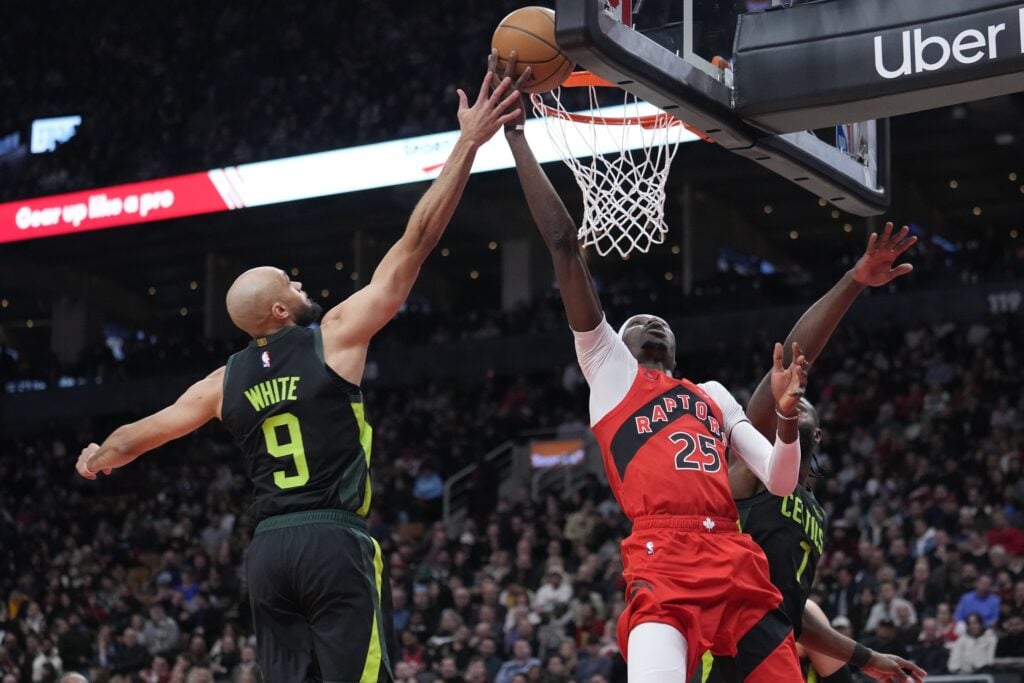BOSTON – The Boston Celtics continue to reshape their roster in a calculated attempt to dodge harsh luxury tax penalties. They’ve already shipped out Jrue Holiday and Kristaps Porziņģis in cost-cutting deals. Now, they’ve flipped Georges Niang—who came over in the Porziņģis trade—in another salary-saving move. The latest Celtics trade, Georges Niang to Utah, gives Boston much-needed cap flexibility.
Why The Celtics Traded Away 39.9% Flamethrower Georges Niang
Cap Management Over Shooting Value
Niang’s exit wasn’t about poor performance. The veteran forward has been a reliable shooter throughout his career. He drilled 40.3% from deep last season on over five attempts per game. For his career, he’s hit 39.9% from three on consistent volume. His skillset would’ve fit Joe Mazzulla’s fast-paced, perimeter-focused offense.
Still, the Celtics are trading Georges Niang to gain more breathing room under the NBA’s dreaded second tax apron. The deal sends Niang and two future second-round picks to the Utah Jazz. In return, Boston receives rookie RJ Luis Jr.—a cost-controlled, low-salary player who doesn’t tip the financial scales with his two-way contract.
What Boston Gains From The Niang Trade
This Celtics trade opens multiple financial doors. First, it generates an $8.2 million traded player exception. Second, it moves Boston just $1.8 million over the first tax apron. That’s significant, as staying under the first apron unlocks more roster flexibility for signings and trades.
Third, the move puts the Celtics $10.1 million below the second apron. That’s important for long-term planning, especially with Jayson Tatum’s supermax extension and Jaylen Brown’s massive contract already in place.
RJ Luis Jr., the rookie Boston received, isn’t expected to contribute much immediately. But his cheap salary helps fill a roster spot without adding much financial strain. He’s a developmental project, not a rotation piece.
Niang’s Departure Opens Doors Elsewhere

Boston didn’t waste time putting their new cap space to work. Shortly after the Celtics traded Georges Niang, they signed veteran forward Chris Boucher on a minimum deal. Boucher adds size and experience to a thin frontcourt that currently includes Luka Garza, Xavier Tillman, and Neemias Queta.
The Celtics are likely not done tinkering. This offseason has shown their willingness to sacrifice proven players to maintain financial flexibility. Every decision appears tied to the team’s goal of avoiding the repeater tax while keeping its championship core intact.
Final Thoughts
The Celtics traded Georges Niang not because of his skill set, but because of dollars and sense. Niang could’ve been a valuable weapon in Mazzulla’s system. But avoiding the second apron and preserving future flexibility mattered more. The front office hopes these sacrifices pay off next spring.
© David Richard-Imagn Images
The post Why The Celtics Traded Away 39.9% Flamethrower Georges Niang appeared first on Last Word On Basketball.